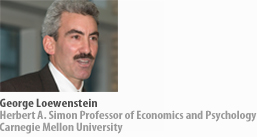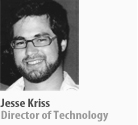
Thomas C. Heller has served as CPI’s Executive
Director since the organization’s start in
September 2009. Before joining CPI, Heller was a
professor at Stanford University for thirty years,
serving as the Shelton Professor of International Legal
Studies, Senior Fellow at the Stanford Freeman Spogli
Institute for International Studies, and Senior Fellow
at the Woods Institute for the Environment. An expert in
law, economic development, and the performance of legal
institutions, Professor Heller has focused his research
on the rule of law, international climate control,
global energy use, and the interaction of government and
nongovernmental organizations in establishing legal
structures in the developing world. Since 1991,
Heller has been increasingly engaged in research and
applied policy studies in energy and climate, with a
principal concern with developments in China, India,
Mexico, Brazil, and other leading emerging markets. He
was a contributing lead author for the IPCC on the Third
and Fourth Assessment Reports, as well as a contributor
to the Special Reports on Technology Transfer and
Emissions Scenarios. Professor Heller has a B.A.
from Princeton University and an L.L.B. from Yale Law
School.

George Loewenstein is the Herbert A. Simon Professor of
Economics and Psychology at Carnegie Mellon University.
He received his PhD from Yale University in 1985 and
since then has held academic positions at The University
of Chicago and Carnegie Mellon University, and
fellowships at Center for Advanced Study in the
Behavioral Sciences, The Institute for Advanced Study in
Princeton, The Russell Sage Foundation and The Institute
for Advanced Study in Berlin. He is one of the founders
of the field of behavioral economics and more recently
of the field of neuroeconomics. He is past president of
the Society for Judgment and Decision Making and a
fellow of the American Academy of Arts and Sciences.
Loewenstein’s research focuses on applications of
psychology to economics, and his specific interests
include decision making over time, bargaining and
negotiations, law and economics and the role of emotion
in decision making.

M. Granger Morgan is Professor and Head of the
Department of Engineering and Public Policy at Carnegie
Mellon University where he is also University and Lord
Chair Professor in Engineering. In addition, he holds
academic appointments in the Department of Electrical
and Computer Engineering and in the H. John Heinz III
College. His research addresses problems in science,
technology and public policy with a particular focus on
energy, environmental systems, climate change and risk
analysis. Much of his work has involved the development
and demonstration of methods to characterize and treat
uncertainty in quantitative policy analysis. At Carnegie
Mellon, Morgan directs the NSF Center for Climate and
Energy Decision Making and is Deputy Director of the
Carnegie Mellon Electricity Industry Center. Morgan
serves as Chair of the Scientific and Technical Council
for the International Risk Governance Council. In the
recent past, he served as Chair of the Science Advisory
Board of the U.S. Environmental Protection Agency and as
Chair of the Advisory Council of the Electric Power
Research Institute, of which he is now again a member.
He is a Member of the National Academy of Sciences, and
a Fellow of the AAAS, the IEEE, and the Society for Risk
Analysis. He holds a BA from Harvard College (1963)
where he concentrated in Physics, an MS in Astronomy and
Space Science from Cornell (1965) and a Ph.D. from the
Department of Applied Physics and Information Sciences
at the University of California at San Diego
(1969).

Doug Rivers is one of the world’s leading experts
on survey research and a successful Silicon Valley
entrepreneur. He has taught at Harvard University,
Caltech, UCLA, and, most recently, Stanford University,
where he is Professor of Political Science and Senior
Fellow at the Hoover Institution. He is also a research
fellow with the Stanford Institute for the Quantitative
Study of Society, a CBS News consultant and Chief
Innovations Officer of YouGov PLC, which operates an
online panel of over 2.5 million respondents worldwide
and a joint public opinion poll with
The Economist. Rivers was founder and CEO of
three successful technology companies, including two
pioneers of online market research — Polimetrix
(2004) and Knowledge Networks (1998). Polimetrix was
acquired by YouGov PLC and now operates under that
brand. Knowledge Networks, a provider of
probability-based digital research solutions, is now a
part of the GfK Group. Most of Rivers' academic research
has been on the application of statistics to political
science and economics. He has also done pioneering work
on simultaneous probit models, causal inference in
social experiments and model selection for time series
published in the American Political Science Review, the
American Economic Review and the Journal of
Econometrics. He received the Innovators Award from
American Association of Public Opinion Research in 2001.
Rivers holds a B.A. from Columbia University and a Ph.D.
from Harvard University.

Roberto Weber heads the Chair for Behavioral Economics
at the University of Zurich. Described broadly,
Weber’s research consists of behavioral and
experimental studies of decision-making in economic and
organizational contexts, frequently using economic games
to study interaction. His work lies at the intersection
of economics, game theory, organizational behavior,
business strategy, and political science; he has
published research in leading journals in these areas.
Prior to joining the University of Zurich in 2011, Weber
was Professor in the Department of Social & Decision
Sciences at Carnegie Mellon University, and was
affiliated with the Tepper School of Business, the
Center for Behavioral Decision Research (CBDR), and the
Pittsburgh Experimental Economics Laboratory (PEEL).
Professor Weber has a Ph.D from California Institute of
Technology.

Guillaume Wright is a Publisher at IOP Publishing
(after joining the company in 2009), a society Publisher
wholly owned by the UK Institute of Physics. His
responsibilities are primarily for two of the companies
environmental products, the open access primary research
journal
Environmental Research Letters
(ERL) and it’s sister news and opinion website
environmentalresearchweb, both aiming to serve the environmental science
community. He oversees the day-to-day management of ERL,
including peer-review, promotional activities, open
access publishing issues, and journal strategy and
development, as well as coordination and editorial
development on environmentalresearchweb. Wright holds a
MPhys in Physics from the University of Oxford.

Wändi Bruine de Bruin, Ph.D., is Professor of
Behavioural Decision Making at the Leeds University
Business School (UK), as well as Associate Professor in
Carnegie Mellon University’s Department of
Engineering and Public Policy, and Adjunct Decision
Researcher at the RAND Corporation. Her research
interests include the psychology of judgment and
decision making, as well as risk perception and
communication. Her research aims to understand how
people make decisions about the risks that they face,
and to develop communications aiming to improve those
decisions. Her work is interdisciplinary in nature, and
involves collaborations with engineers, public health
experts, and economists. She has published in
peer-reviewed journals in multiple disciplines,
including psychology, environmental science, economics,
and public health. She has contributed her expertise to
advisory panels and workshops organized by the Centers
of Disease Control, the Environmental Protection Agency,
the Federal Reserve Bank, the Food and Drug
Administration, and the National Research Council.

Peter Kriss completed his Ph.D. in Behavioral Decision
Research at Carnegie Mellon University in 2012, and is a
lead research scientist at Medallia, a survey research
firm. He studies behavioral decision making, behavioral
economics and management, with a focus on the role of
communication in promoting
“good” social ends, such as mutually
beneficial economic relationships, agreement over
conflict, efficient coordination, and fair and ethical
behavior. He has an M.S. in Behavioral Decision Research
from Carnegie Mellon and a B.A. in mathematics with
minors in philosophy and psychology from Swarthmore
College.

Mark Kriss is an information technology entrepreneur
and researcher, whose current focus is scientific
opinion polling and risk communication about climate
change. His prior start-ups, in media and technology,
were acquired by Dow Jones, Cisco, Exodus
Communications, Primedia and Broderbund. Mark’s
fascination with real-world information markets dates
from the mid-1980s when he spent five years working with
some of the world’s leading currency traders as a
part of a successful software venture he co-founded. In
1993, he co-founded one of the first commercial Internet
companies, with financial backing from Welsh, Carson,
Anderson & Stowe, a leading private equity firm.
Earlier in his career, Mark held senior positions in
technology research at SRI International (formerly
Stanford Research Institute) and Yankee Group. He served
as a mentor in the Center for Entrepreneurial Studies at
Stanford Graduate School of Business from 1995 to 2008.
Adapting investment portfolios to climate and carbon
risks is a current area of research, in the context of
Macroclimate LLC, an asset management firm he founded in
2004. Mark has a B.A. from the University of California,
Berkeley and M.A. in communication research from the
University of Minnesota School of Journalism and Mass
Communication.

Jesse Kriss is an expert on data visualization, web technology, and user interface design, and has been designing and implementing web-based interfaces and systems since 1997. In 2005, he joined IBM Research as one of the initial members of Martin Wattenberg’s Visual Communication Lab (VCL) prototyping interactive information visualization systems. During his five-year tenure at the VCL, he served as lead developer for Many Eyes, a collaborative visualization tool that allows users to gather data, visualize it, and discuss their visualizations, as well as the Visualization Lab for The New York Times. Since IBM, Jesse has worked as a independent consultant in the areas of web development, human-computer interaction, and information visualization for a range of clients, including Stanford University and Figure 53. He is currently Senior Design Lead in the Human Interfaces Group at NASA/JPL. Jesse has a B.A. in music from Carleton College and Masters degree in Human-Computer Interaction from Carnegie Mellon University.


